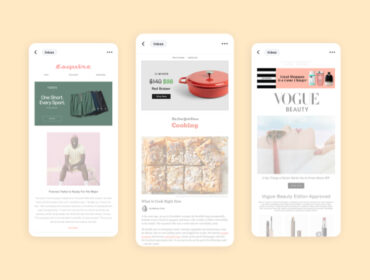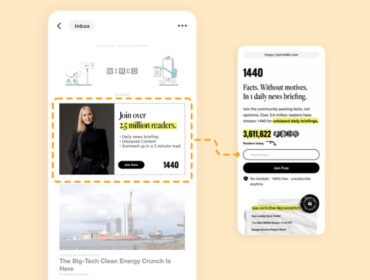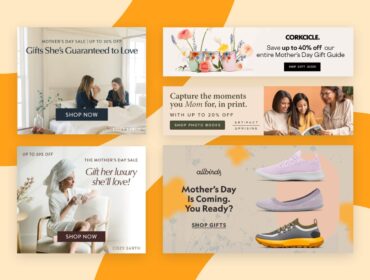4 reasons personalization matters now more than ever — and how email can help
Personalization is no longer just the cherry on top of a good campaign sundae. It’s the ice cream itself — absolutely necessary and fundamental to making the whole experience happen.
As McKinsey & Company reported in its 2021 study, personalization matters now more than ever. Not only is the web increasingly saturated with attention-grabbing content, but the pandemic caused consumers to have wandering eyes: 75% of consumers switched to a new store or shopping method over the last couple of years and more than 80% of them plan to continue with these new behaviors.
To win over those new audiences and retain the ones they already have, brands need to personalize their campaigns or risk getting left behind — even by customers they once thought to be loyal.
That’s where email comes in. As the most trusted media channel on the web, email is the answer to understanding your audience, gathering first-party data, and reaching customers with opt-in, one-to-one content at just the right moment.
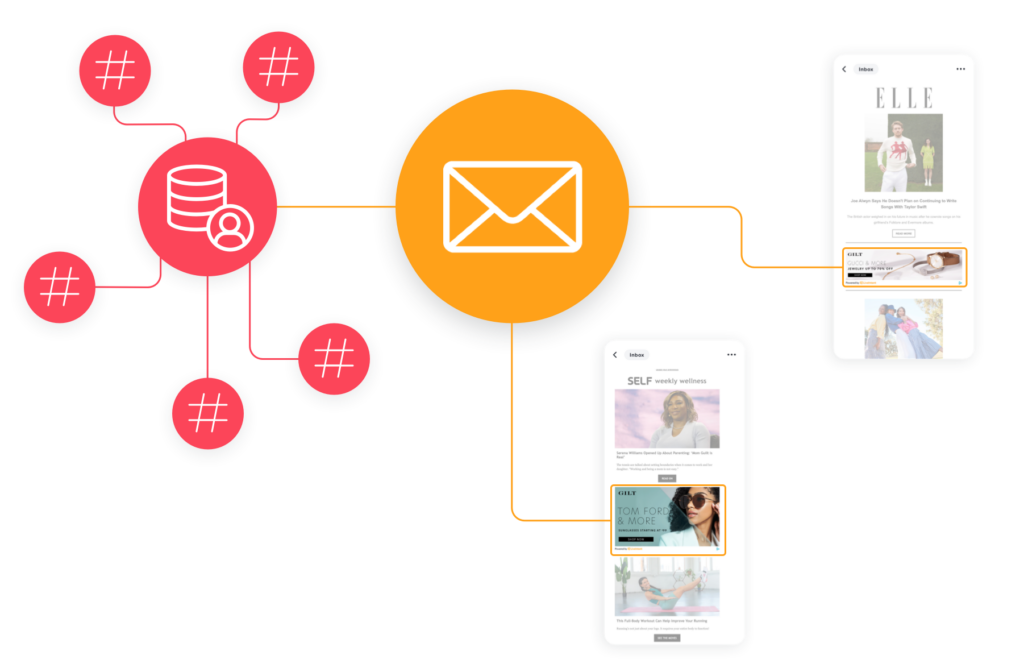
Put more simply, email is the key to personalization. (In our sundae analogy, it’s the ice-cream maker, if you will.)
With that in mind, let’s check out four key findings from the McKinsey report that prove the power of personalization — and look at how email can help.
1. People expect personalized interactions from companies
Personalization isn’t an add-on bonus for consumers, either: Over 70% expect companies to deliver personalized interactions and 76% get frustrated when they don’t receive them.
Email is the ideal channel for delivering those personalized experiences since it reaches captive audiences with messaging they explicitly signed up to receive. Also, with email, your brand message isn’t plopped in among a never-ending feed of other content like it is on social platforms.
As LiveIntent CMO Kerel Cooper says, “When you’re in your inbox, it’s you and the content. You can consume it how you want, when you want, without all the noise around it.”
2. Consumers want businesses to know their interests
Seventy-two percent of consumers expect brands to know their interests and communicate with them as individuals.
More specifically, people respond positively when businesses:
- Offer relevant product recommendations
- Customize messaging to their needs
- Celebrate their milestones
- Deliver timely communications
- Follow up after they make a purchase
- Address communications directly to them
What’s the one channel that brands can use to accomplish each of these? Email. Just look at Groupon, an eCommerce company whose entire business model lies in consistently delivering personalized offers and recommendations to its customers.
“Email is one of our biggest channels,” says Jon Nolz, global director of Groupon. “We send out millions and millions of emails on a daily basis, and it’s a way that we engage with our customer base and provide them with relevant offers based on a variety of different factors that we collect through sophisticated tracking.”
3. Personalization is a key factor in brand consideration
Over 75% of consumers are more likely to consider buying from brands that deliver personalized communications and 78% are more likely to repurchase. This proves again that personalization can’t just be a one-off strategy for businesses; it needs to be baked into each decision that drives each campaign along the path to purchase — and repurchase.
Especially now that consumers are trying new brands and buying methods, companies have to work extra hard to retain audiences and build loyalty. And they can do that by personalizing experiences over email.
Hear.com, for instance, uses email to educate consumers and actively break down stigmas about hearing aids throughout its complex marketing funnel. The brand also connects customers with their own hearing aid specialist to learn more about the right device for their lifestyle.
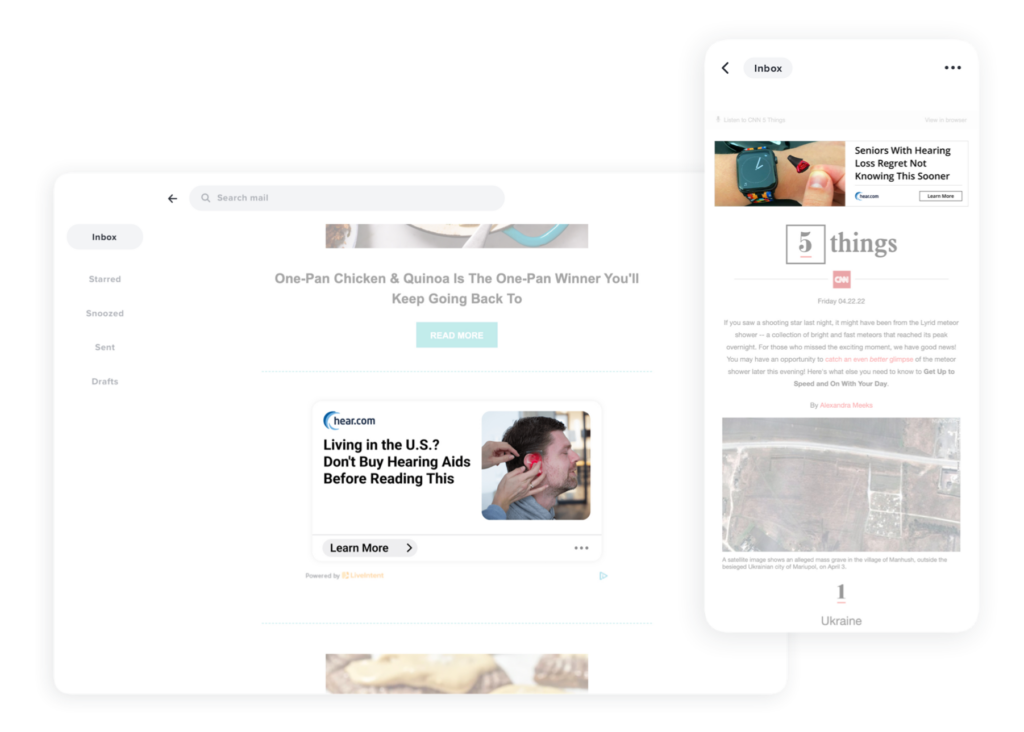
“Learn about your customer and understand what really drives them to click on your ads, or what their necessity is and how [you] can help them,” says Sirick Wohlers, vice president of marketing in North America for Hear.com. “I think that’s one of the most important things.”
4. Businesses that personalize see increased revenue
Personalization doesn’t just make customers happier. It also helps brands meet their bottom line and increase revenue. As McKinsey & Company reported, companies that use data to personalize their messaging see 10-15% revenue lift and more loyal, active customers. These brands also approach personalization as an organization-wide imperative that yields long-term growth — not just a one-time task for the analytics team to check off.
Rue Gilt Groupe, an eCommerce company, works with LiveIntent to automatically build personalized email campaigns based on the items in users’ carts. Buyers reached with this strategy demonstrated a 2x higher conversion rate, allowing Rue Gilt Groupe to exceed its ROAS goals and double its new member conversion rate and order value.
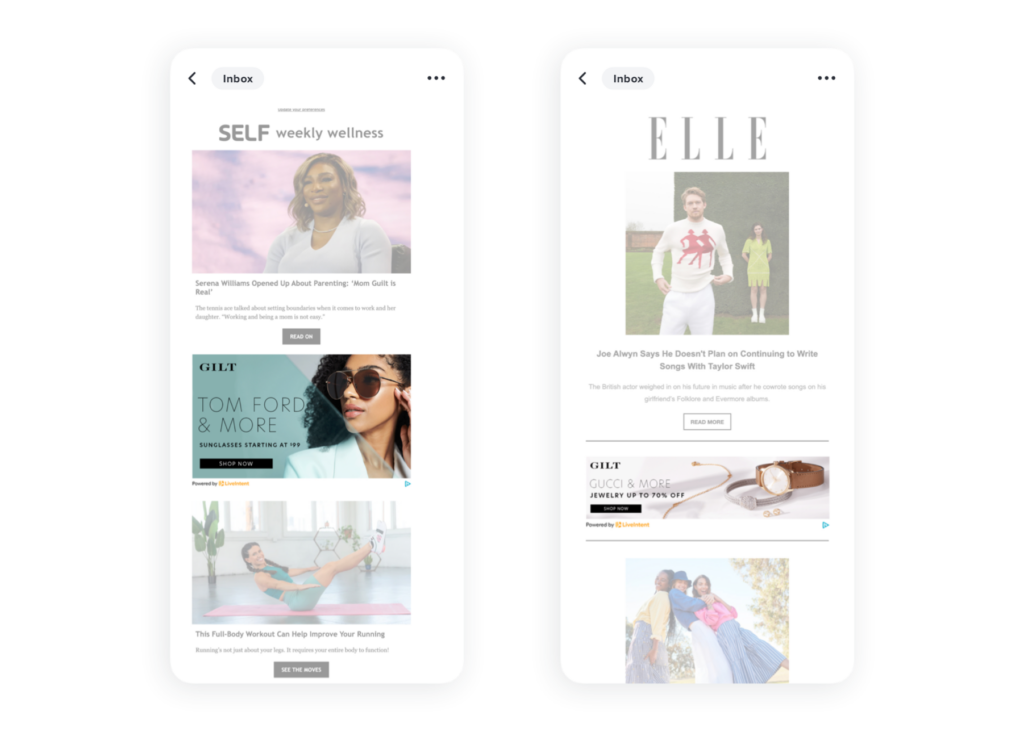
So, yes, personalization is more than just a last-minute addition to a campaign strategy. It’s the key to nurturing customer relationships and driving purchases — and it’s especially effective when done via email.
